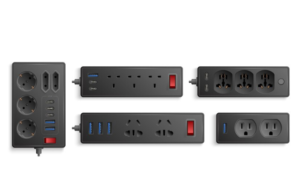
Early education is a crucial foundation for a child’s future success. The early years are a time of rapid growth and development, and the experiences children have during this period significantly shape their cognitive, social, and emotional skills. Parents have various options to consider when choosing the right educational path for their children. This article will explore several key options, including child care, early learning programs, and other alternatives to support your child’s early education development.
Child Care: Ensuring a Safe and Nurturing Environment
When it comes to child care, finding a safe and nurturing environment is paramount. Parents should look for facilities that provide a structured yet flexible approach to learning, allowing children to explore and grow at their own pace. In Morris Plains, NJ, child care Morris is renowned for its commitment to providing high-quality early education. These centers not only offer essential supervision and care but also integrate educational activities that stimulate young minds.
Child care facilities often employ experienced educators who understand child development and can create engaging activities tailored to various age groups. They foster an environment that encourages social interaction, helping children develop crucial interpersonal skills while providing a solid educational foundation. As a parent, investing in quality child care ensures your child is in a safe, stimulating environment that nurtures their growth and learning.
Early Learning Programs: A Structured Approach to Development
Early learning programs are designed to provide children with structured educational experiences that promote development in multiple areas, including cognitive, social, emotional, and physical skills. These programs typically cater to children aged 3 to 5 and focus on preparing them for kindergarten and beyond.
When considering an early learning program, it’s essential to look for those that follow research-based curricula and prioritize play-based learning. This approach allows children to engage with their surroundings, explore concepts through hands-on activities, and develop a love for learning. Look for programs that incorporate elements of literacy, mathematics, science, and art, fostering a well-rounded educational experience.
Additionally, early learning programs often emphasize the importance of social skills and emotional intelligence. Activities that encourage teamwork, problem-solving, and effective communication prepare children for the social dynamics they will encounter in school. Many programs also offer parent engagement opportunities, allowing parents to participate in their child’s learning journey and build a community of support.
Montessori Schools: Emphasizing Independence and Self-Directed Learning
Montessori schools provide a unique alternative for early education. Founded by Dr. Maria Montessori, this educational philosophy emphasizes independence, hands-on learning, and respect for a child’s natural development. In a Montessori environment, children are encouraged to choose their activities and work at their own pace, fostering a sense of autonomy and responsibility.
Montessori classrooms are typically equipped with specially designed learning materials that encourage exploration and discovery. The teacher’s role is to guide rather than direct, allowing children to learn through experience. This approach helps develop critical thinking skills, creativity, and self-discipline, preparing children for future academic challenges.
If you’re considering a Montessori school for your child, research local options to find one that aligns with your educational values and priorities. Visit the schools, observe classrooms, and speak with educators to ensure a good fit for your child.
Home Schooling: A Personalized Learning Experience
For some families, homeschooling offers a tailored educational experience that meets their child’s unique needs and learning style. Homeschooling allows parents to take control of their child’s curriculum, choosing materials and methods that resonate with their child’s interests and strengths.
Homeschooling can be particularly beneficial for children who may thrive in a less structured environment or require specialized support. It provides flexibility in scheduling, allowing families to travel or engage in experiential learning opportunities outside the traditional classroom.
However, homeschooling also requires significant commitment and planning. Parents should be prepared to dedicate time to curriculum development, lesson planning, and assessment. Additionally, connecting with local homeschooling communities can provide valuable resources, support, and socialization opportunities for both parents and children.
Pre-Kindergarten Programs: Bridging the Gap to Formal Education
Pre-kindergarten programs serve as a bridge between child care and formal education. These programs typically focus on preparing children for the transition to kindergarten by developing foundational skills in literacy, math, and social interaction.
Many pre-kindergarten programs emphasize structured learning environments that incorporate play, art, and exploration. They provide a balanced approach, allowing children to engage in guided activities while still having the freedom to explore their interests.
When selecting a pre-kindergarten program, consider factors such as teacher qualifications, class size, curriculum focus, and the overall learning environment. A well-rounded pre-kindergarten program will equip your child with the skills and confidence they need to succeed in kindergarten and beyond.
Conclusion
Choosing the right early education development option for your child is a significant decision that can impact their future success. From child care facilities like child care Morris in Morris Plains, NJ, to early learning programs, Montessori schools, homeschooling, and pre-kindergarten options, there are numerous paths to consider. Each choice offers unique benefits and opportunities for growth, so take the time to research and evaluate the best fit for your child’s needs and your family’s values. Investing in your child’s early education is a powerful step towards fostering a lifelong love for learning and preparing them for a bright future.


